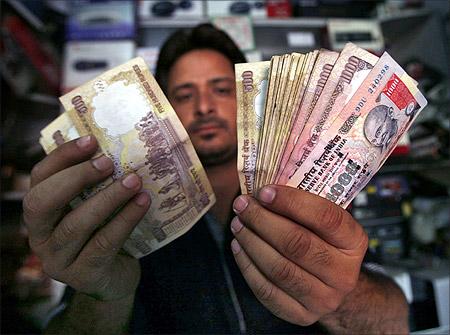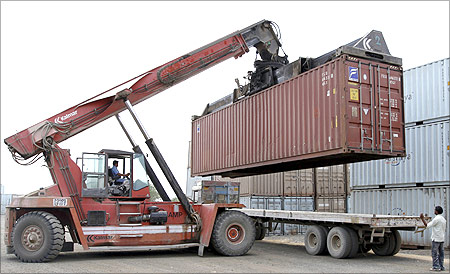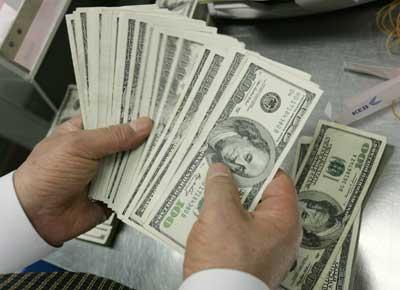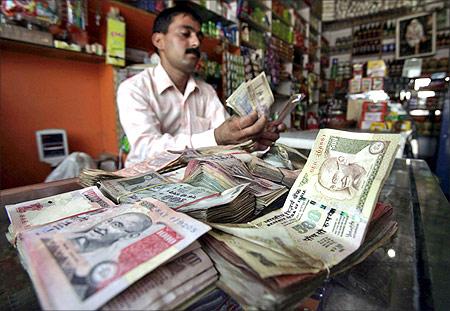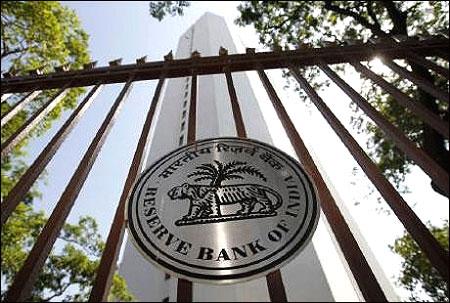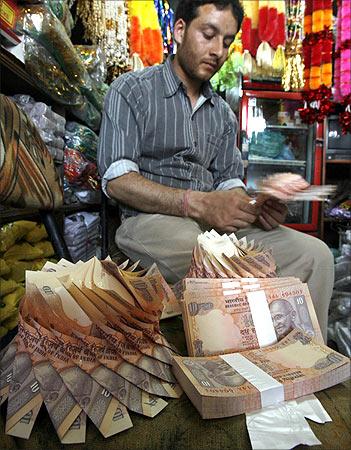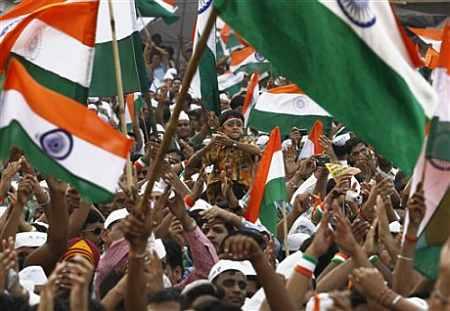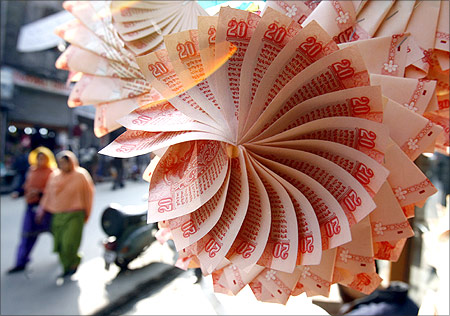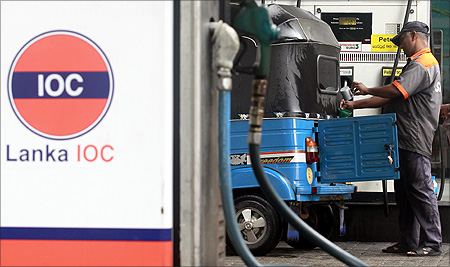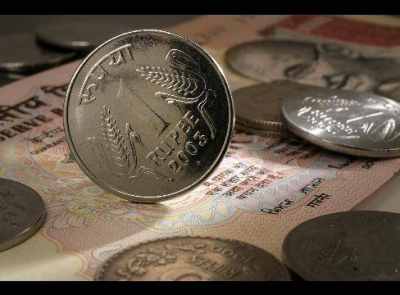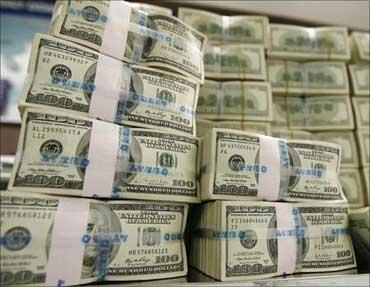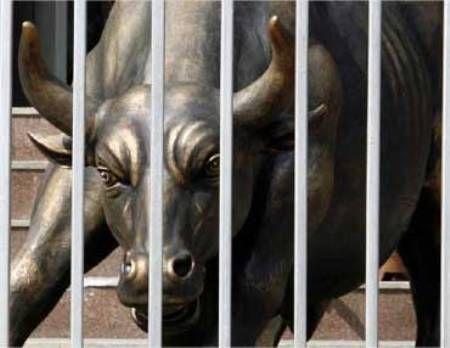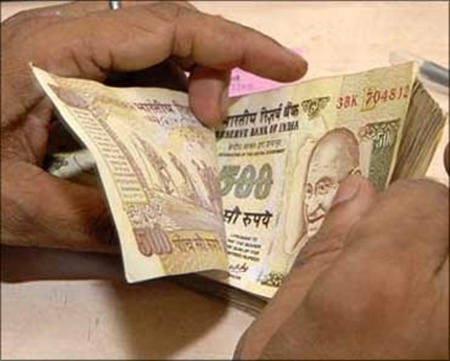 | « Back to article | Print this article |
Why the rupee is on a freefall
"Free Fallin!" is an old American country song sung by Tom Petty and the Heartbreakers.
The rupee surely is now on a free "heartbreaking" fall. As I write this the dollar is worth around Rs 54.7, the lowest level ever for it has ever reached against the dollar.
It is well on its way to touching Rs 55 against the dollar. Some analysts have even predicted that it will soon touch Rs 60 against the dollar.
So what is making the rupee fall? There are several interlinked reasons for the same. Let me offer a few here.
Share your ideas on how the rupee can be saved. See what others have to say.
Click NEXT to read more...
Why the rupee is on a freefall
Trade deficit
India ran a trade deficit of nearly $185billion in the financial year 2011-2012 (i.e. between April 1, 2011 and March 31, 2012).
Trade deficit refers to a situation where a country imports more than it exports. So in the last financial year India's import of goods and services was $185billion more than its exports.
This trend has continued in the current financial year as well. The Indian imports for the month of April 2012 were at $37.9billion, almost 55% more than its exports at $24.5bilion.
Click NEXT to read more...
Why the rupee is on a freefall
Imports have to be paid for in dollars because that is the international currency that everybody accepts. They cannot be paid for in rupees.
Now when payments have to be made in dollars, the importers sell rupees and buy dollars.
When this happens the foreign exchange market suddenly has an excess supply of rupees and a short fall of dollars. This leads to rupee losing value against the dollar.
Click NEXT to read more...
Why the rupee is on a freefall
This is the basic reason why rupee has been losing value against the dollar because we have been importing much more than we have been exporting.
In case our exports matched our imports, then exporters who brought in dollars would be converting them into rupees, and thus there would be a balance in the market.
Importers would be buying dollars and selling rupees. And exporters would be selling dollars and buying rupees. But that isn't happening in a balanced way.
Click NEXT to read more...
Why the rupee is on a freefall
The RBI intervention
The Reserve Bank of India (RBI) tries to stem the fall of the rupee at times.
It does this by selling dollars and buying rupees to ensure that there is an adequate supply of dollars in the market and at the same time any excess supply of rupees is sucked out.
This is done in order to ensure that the rupee either maintains or gains value against the dollar.
Click NEXT to read more...
Why the rupee is on a freefall
But the RBI cannot do this indefinitely for the simple reason that it has a limited amount of dollars.
The RBI can print rupees and create them out of thin air, but it cannot do the same with the dollar.
But that still doesn't answer the basic question of why does India import more than it exports.
Click NEXT to read more...
Why the rupee is on a freefall
Why does India run a trade deficit?
India runs a trade deficit on two accounts. One is that it has to import oil to meet a major portion of its domestic needs.
And the second is the fact that Indians have a huge fascination for gold. Last year India imported around 1000 tonnes of gold.
So we do not produce enough of the oil that we use and the gold that we buy. This in turn means that we have to import this from abroad. Both oil and gold are internationally sold in dollars.
Click NEXT to read more...
Why the rupee is on a freefall
The price of both oil and gold has been going up for a while (though very recently it has been falling). This means more and more dollars have to be paid for importing them.
This, as explained above, leads to a glut of rupees and an increased demand for the dollars, thus pushing down the value of the rupee against the dollar.
On April 1, 2011, one dollar was worth Rs 44.44. Between then and March 31, 2012, India ran a trade deficit of $185billion. And it has continued that in the month of April 2012 as well. This has led to one dollar being currently worth Rs 54.7.
Click NEXT to read more...
Why the rupee is on a freefall
Subsidies
What has also happened is that the government of India has not allowed the oil companies to pass on the increased cost of oil to the end consumer.
Hence products like kerosene, diesel and LPG continued to be subsidised. The government in turn pays the oil companies for the losses leading to an increased fiscal deficit.
But more than that with prices not rising as much as they should people have not adjusted their consumption accordingly.
Click NEXT to read more...
Why the rupee is on a freefall
An increase in price typically leads to a fall in demand. If the increased price of oil had been passed onto the end consumer, the demand for oil would have come down.
This would have meant that a fewer number of dollars would have been required to pay for the oil being imported, in turn leading to a lower trade deficit and hence lesser pressure on the rupee-dollar rate.
Click NEXT to read more...
Why the rupee is on a freefall
Conclusion
When imports are more than exports what it means is that the country is paying more dollars for the imports than it is earning from the exports.
This difference obviously comes from the foreign exchange reserves that India has accumulated over the years.
But that clearly isn't healthy given our imports are more than 50% of our exports and there is a limited supply of foreign exchange reserves.
Click NEXT to read more...
Why the rupee is on a freefall
So the market is now worried about this and is further pushing down the value of the rupee.
The only way to control the fall of the rupee for the government is show the market that it serious about cutting down the trade deficit.
And this can only be done by pricing the various oil products like diesel and kerosene, correctly.
This in turn will lead to a lower demand for these products and help bring down the trade deficit.
Click NEXT to read more...
Why the rupee is on a freefall
It will also push down the fiscal deficit, given that the subsidy burden of the government will be eliminated or come down.
On the flip side an increase in the price of oil products will lead to increased inflation, at least in the short term.
In the end the only way to stem the fall of the rupee against the dollar is to eliminate and if not that, at least bring down, oil subsidy.
Will that happen? Will the allies of the Congress led United Progressive Alliance government allow that to happen?
I remain pessimistic.
Vivek Kaul is a writer and can be reached at vivek.kaul@gmail.com
